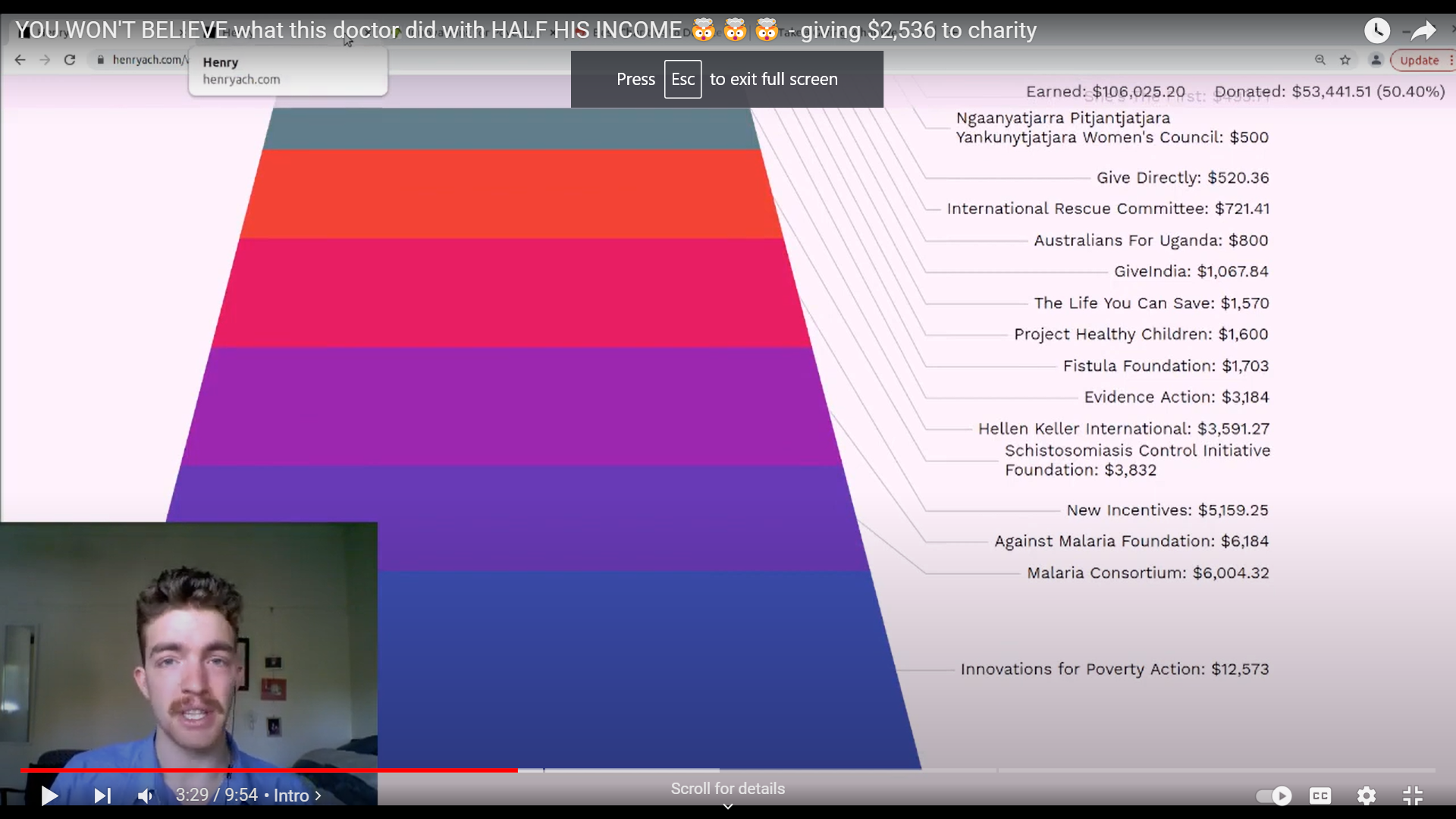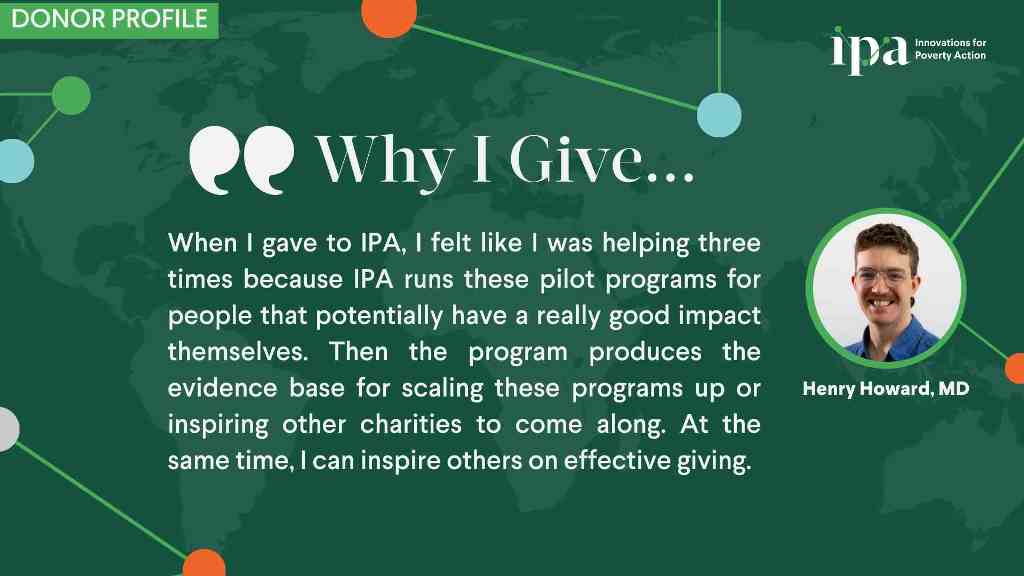Tripling Impact: Henry Howard's Journey of Effective Giving with IPA
Henry Howard is not your typical young doctor from Melbourne, Australia. In 2021, Howard made headlines for dedicating 50 percent of his first year's income (AU $53,000) to charity. One of them—his favorite, to which he dedicated 20 percent of his donation—was Innovations for Poverty Action (IPA).
Howard learned about IPA from The Life You Can Save, an organization founded by Australian philosopher Peter Singer, who taught about effective giving and ways to help others. The ripple effect of the evidence that IPA produces fascinated Howard and is part of what inspired him to support IPA.
“When I gave to IPA, I felt like I was helping three times because IPA runs these programs for people that potentially have a really good impact themselves. Then the program produces the evidence base for scaling these programs up or inspiring other charities to come along. At the same time, I can inspire others on effective giving,” he says.
After giving away half of his first-year income in 2021, Howard pledged to donate ten percent of his income to effective charities for the rest of his life.
“Not everyone can do it, but a lot of us can,” he asserts. “My doctor colleagues in Australia, for example, can easily give away one-tenth of their income without significantly impacting the quality of their life but can make a massive impact on the quality of lives of other people in another part of the world who are really struggling.”

Howard has not always been in the position to give to charities. During medical school, he lived a frugal life.
“I thought the whole time of many ways to give back, but there was not much I could do because I did not have many skills or money to give.”
Instead, he found creative ways to donate to charities, such as signing up for a clinical trial for an experimental malaria treatment, where he infected himself with malaria. Although Howard was in the best controlled and monitored place to have malaria, the illness was unimaginable.
“I had cyclical fevers that came and went,” he recalled. “You feel terrible one minute and the next minute you are ok. Even though mine was pretty mild, this is a disease that affects millions of people and kills half a million people every year.”
Howard then received AU $3,000 and donated the money to the Against Malaria Foundation, which scales the distribution of anti-malaria bednets preventing illness and death from malaria. The effectiveness of this approach was also backed by IPA research.
Family-sized nets, typically priced between US $2 and US $3, have been shown to be a highly cost-effective method to prevent malaria. For comparison, saving a person’s life from this deadly disease costs about US $3,340.
“I’m always on the lookout for charities that are doing effective work. I don’t just want to give to anyone without thinking. I want to give it to organizations that use the money effectively to help people,” reflects Howard.

Sarah de Tournemire, Chief Philanthropy and Partnerships Officer at IPA, highlights that supporters like Howard help IPA raise unrestricted funding that is crucial to its continued success and growth, as the money can be used when and where it is most needed.
“Gifts from individual donors help IPA achieve our mission with greater effectiveness and increase our ability to be flexible and innovative,” she said. “IPA donors are some of the most interesting and thoughtful individuals I have worked with over my two decades in resource mobilization.”
As for Howard, giving to effective charities such as IPA makes him feel fulfilled.
“It gives me a sense of purpose. I can rest easy every day and I can jump out of bed in the morning knowing I am doing my best to make the world a better place in the most effective way that I can.”












